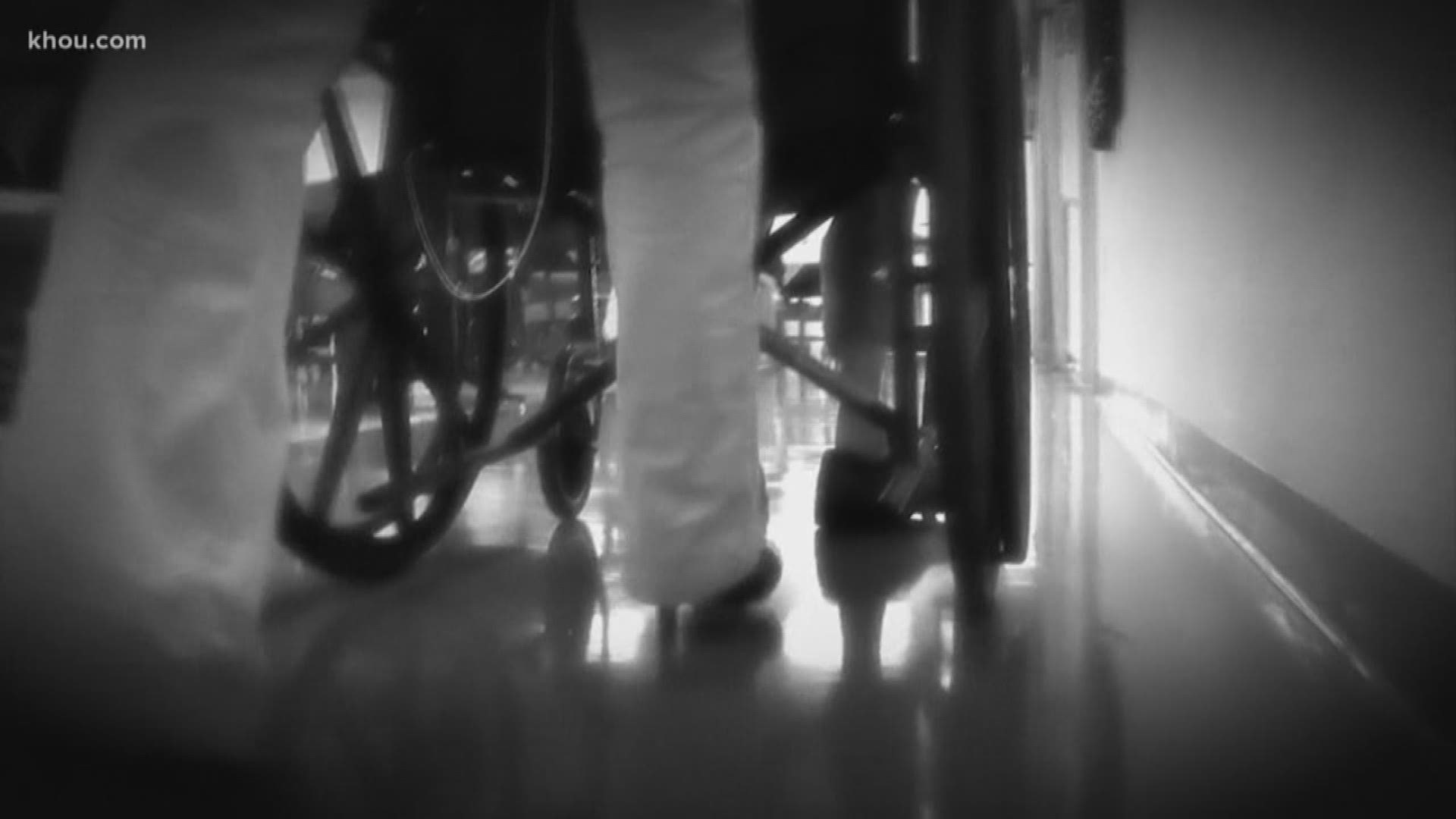HOUSTON — Three out of four nursing homes in the Houston area did not follow federal law to prevent and slow the spread of disease, according to a KHOU 11 analysis of health inspections over the past four years.
The findings come as the number of COVID-19 deaths grows in nursing homes across the state. The Texas Health and Human Services Commission confirms 113 residents have died, up from 70 the agency reported earlier in the week.
Overall, more than one in four coronavirus deaths in Texas, 26% are linked to nursing homes.
“I think everyone needs to be worried right now,” said Benita Hampton, owner of Texas Senior Advocates.
The College Station company helps families find quality long-term care for loved ones, and as a consultant, helps nursing homes stay in compliance with federal law.
The Centers for Medicare and Medicaid Services requires facilities to have formal policies and procedures to prevent and control infection. They include hand hygiene, disinfecting equipment and supplies and the proper handling and disposal of biohazard waste.
According to health inspections from January 2016 to December 2019, 133 Houston-area nursing homes had at least one deficiency in the area of infection prevention and control.
Thirty-three facilities were cited three times or more.
“It’s not uncommon to walk into a facility where the staff doesn’t really have a lot of knowledge as to what the infection control procedure is,” Hampton said.
She added there is sometimes an alarming reason why—the infection control training manual is buried in some office collecting dust.
“Where it’s unfortunate, like I said, is when it is sitting in a file cabinet and never has been touched,” she said.
Some nursing homes that are now reporting positive COVID-19 cases had previous infection procedure deficiencies that they later corrected.
The Buckingham, which has a total of 20 positive COVID-19 cases for residents and staff, was cited in November 2019. A nurse failed to clean a glucometer or wash her hands after caring for the resident, according to the inspection report.
A spokesperson for the facility declined to address that violation, but instead referred KHOU to its website, which states, “The Buckingham continues to take all action steps … to protect employees and employees.”
Park Manor of Quail Valley had one deficiency in November 2016. No details were immediately available from the Centers for Medicare and Medicaid Services.
The Resort at Texas City, where 80 residents and employees recently tested positive, had a deficiency in June 2017. The facility’s health inspection report stated two nurses assistants failed to wash their hands while changing catheters. The nursing home did not respond to requests for comment.
The Heights of Tomball was cited three times in three years beginning in 2017. The deficiencies range from improper isolation precautions, failure to use personal protective equipment and poor disinfecting practices.
Last month, a former resident of the Heights of Tomball became Harris County’s first coronavirus death. A spokesperson for the facility provided the following statement:
“Our community is in good standing with all state and local survey regulations, and we currently have no deficiencies or COVID-19 cases of any kind. HHSC completed an inspection of our community related to the former resident who tested positive COVID-19 after he was discharged, and notified us that no deficiencies will be cited. We are grateful for everyone’s support during these challenging times for all healthcare providers, and we applaud our front line caregivers for their tireless dedication to those they serve.”
The coronavirus crisis still concerns many families. Advocates for senior living have seen a dramatic spike in calls from families concerned about their loved ones’ well-being.
“I would say it’s probably doubled,” said Lisa Hayes, HHS’ managing long-term care ombudsman for the Greater Houston area. “We don’t want families to panic, we do want them asking what is going on at the facilities that their loved ones are in.”
She said some of the questions families should be asking: Are non-essential visitors allowed in the nursing home? Are they checking for fever twice a day, both residents and staff? Does the staff have personal protective equipment?
Even for nursing homes with a poor track record of infection control, Hayes said there is encouraging news.
“The important context is right now facilities are getting more training, more attention to infection control than ever before,” she said.
If families are considering pulling their loved one out of nursing home, Hayes said they should really think it through. She said often they bring a relative home only to quickly realize they can’t provide the necessary equipment and care.
“We don’t want loved ones going home and then their underlying condition for why they were in the facility can’t be treated properly,” she said.
According to new regulatory guidelines, families also should know that if they’re seeking to change nursing homes, all new residents will be isolated for the first 14 days of their stay. You can find your local HHS ombudsman by calling 1-800-252-2412 or clicking here.
MORE FROM KHOU 11 INVESTIGATES
- Retail stores, beauty salons have the most complaints for violating Houston's COVID-19 order
- A side effect of COVID-19 crisis: Houston's air is cleaner
- Katy Freeway traffic drops in half during Harris County's stay-at-home order
- Coronavirus crimes: Houston police tracking cases of stolen COVID-19 supplies
- 4,000 price-gouging complaints have been filed in Texas during COVID-19 emergency

